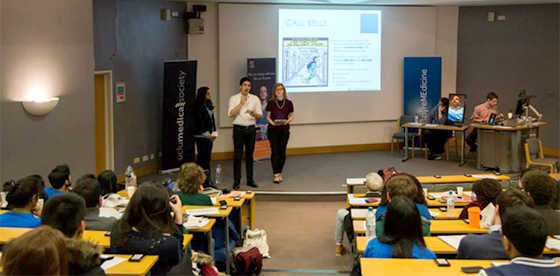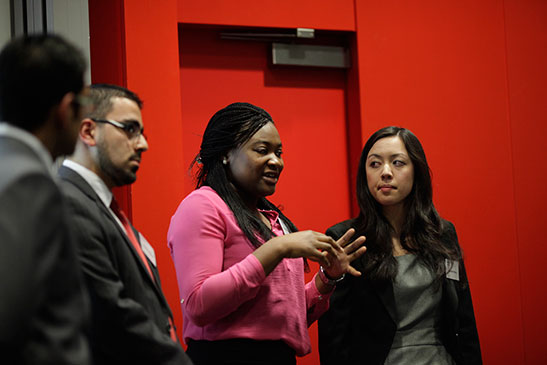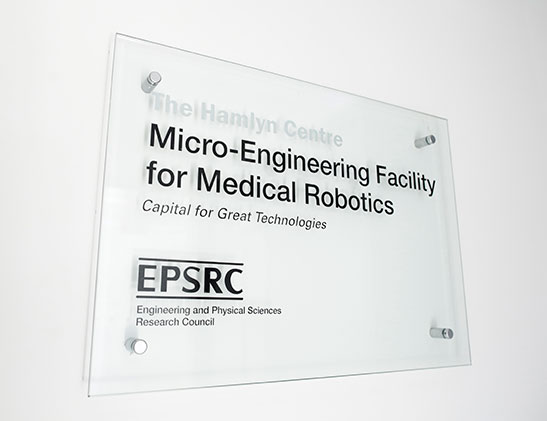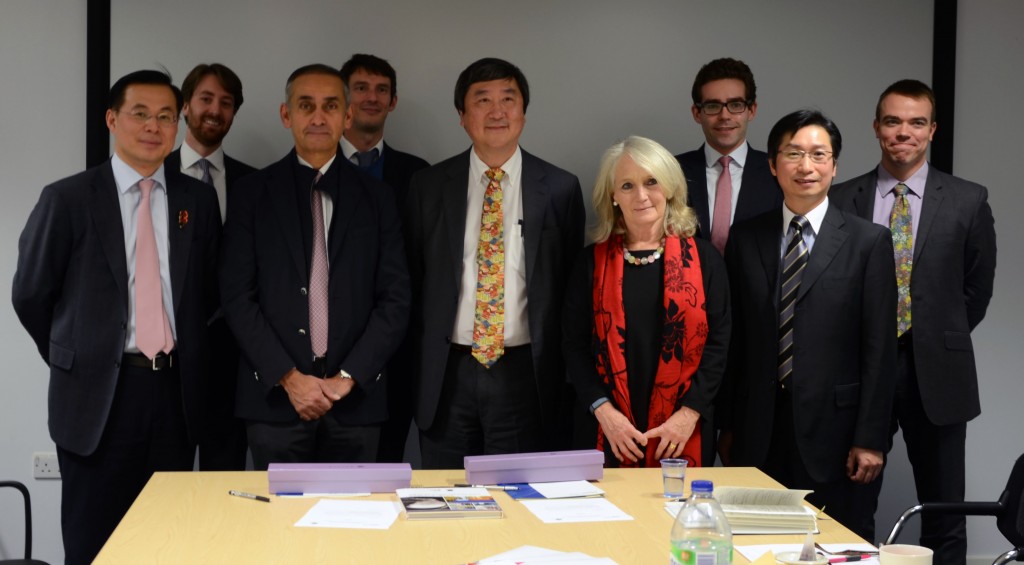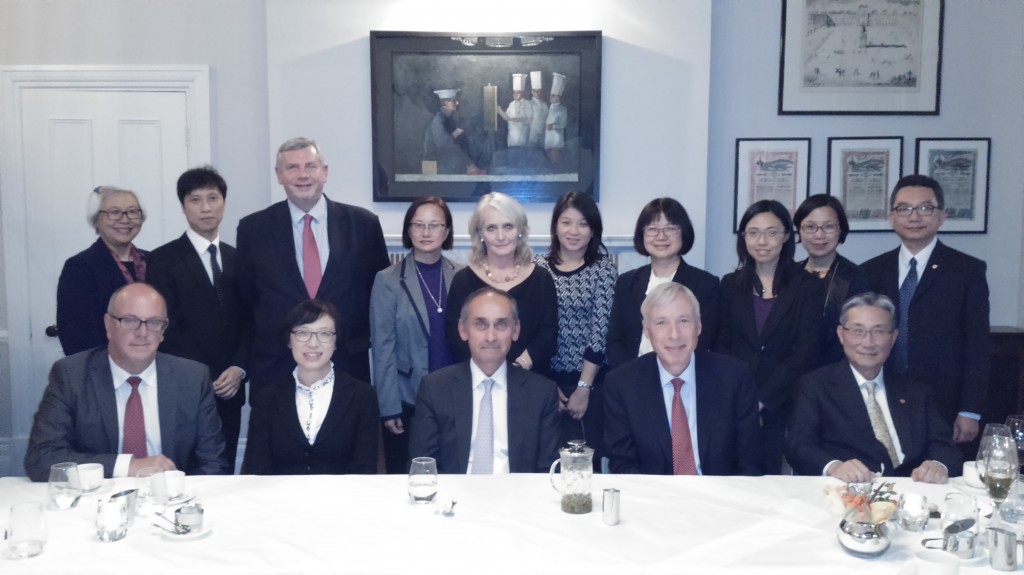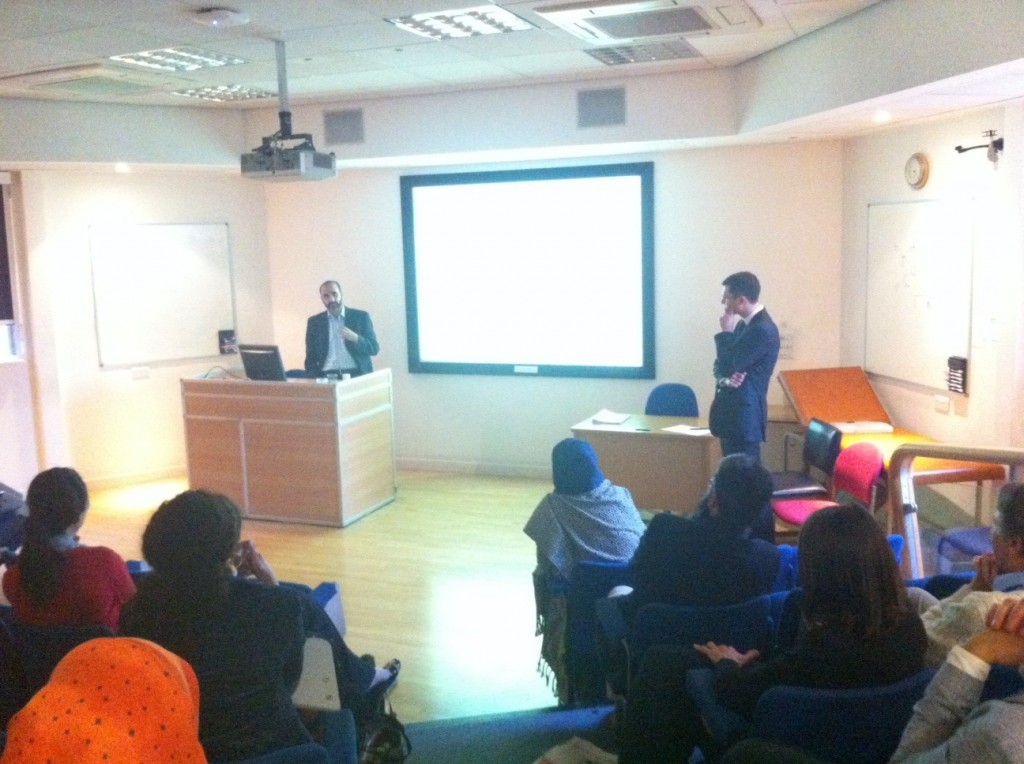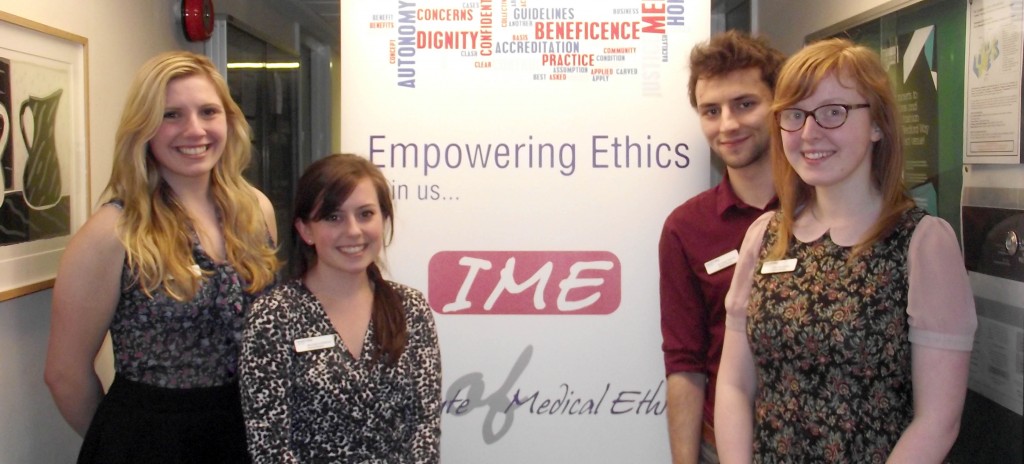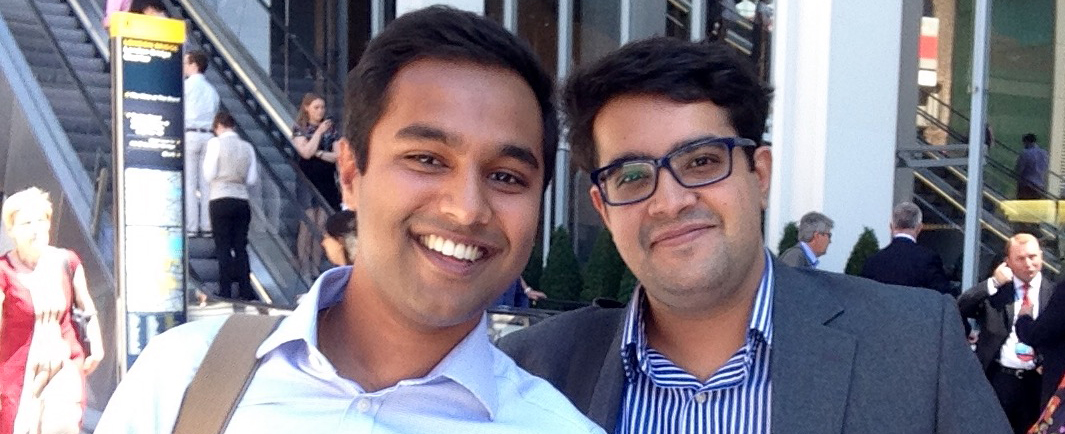 Two Imperial students have been recognised at a prestigious competition involving medical schools across the capital.
Two Imperial students have been recognised at a prestigious competition involving medical schools across the capital.
Rahul Ravindran took home the top prize at The University of London Gold Medal Viva – an annual competition organised by the University of London for institutions in the capital with medical schools. Fellow classmate Ashik Amlani also took home the Betuel Prize as the runner up.
Here Rahul and Ashik describe their successes, time at Imperial and hopes for the future.
Rahul Ravindran
I found out that I was nominated for the Gold Medal Viva in Muheza, a rural village in Tanzania, during my elective. To find this out by mobile in a place with no running water was surreal. It was a daunting task as I had been given around six weeks to cover most of what I had learnt over the past six years! My preparation consisted of reading medical journals and meeting with members of the Faculty of Medicine to practise answering viva questions.
The day of the viva was in the final week of my studies at Imperial. I was questioned on a very wide range of topics, ranging from the molecular mechanisms of colorectal cancer metastasis to my opinions on how to improve child health in the UK. After the grilling was over I enjoyed the sunshine and took some photos to remember the day (the photo here was taken after the viva before the results).
I knew I would discover the outcome on the same day and the wait was very nerve-wracking. I remember eating my lunch on the bank of the Thames by Tower Bridge when I received the result by email. I was shocked to discover that I had won the competition! I immediately called my parents and all the mentors and friends who had supported me through the process. I spent the rest of the day celebrating with friends in London.
I am now moving to Oxford to embark on an Academic Foundation Programme in order to develop a career which combines my two passions of clinical and academic work. Winning the London Gold Medal has been a truly special way to complete my time at Imperial. I owe my success to the constant encouragement I have received from my family and friends, as well as the remarkable staff from the Faculty of Medicine who have taught me over the past six years. I am very grateful and will be forever indebted to my teachers here.
Ashik Amlani
When I received my nomination for the University of London Gold Medal Viva, my initial reaction was one of shock and incredulity. I could not believe that Imperial College School of Medicine had nominated me to represent the rest of my peers and the College at large in this most prestigious and enduring of competitions which has previously featured the likes of Sir Alexander Fleming. However, having eventually cast away any thoughts of a colossal mix up, these feelings gave way to immense pride and honour. I was desperately keen to do Imperial proud and continue the trend of success we have enjoyed over the past few years in the competition.
The format of the competition is simple. There are six eminent examiners asking questions within their chosen fields – medicine, surgery, clinical sciences, clinical pharmacology, obstetrics & gynaecology, and paediatrics – for five minutes each. A daunting prospect indeed! The viva included being asked about the mechanisms of cancer metastases and the various theories behind the recent trend in increasing asthma diagnoses in the UK. Even though the teaching and exam process at Imperial prepares us very well for viva questions, the viva was extremely difficult and I felt it did not go well.
Imagine, then, my delight and surprise to have been part of another Imperial clean sweep in the Gold Medal competition. Being awarded with the Beutel Prize was, apart from proving the existence of divine intervention, quite simply the best way to end my time here at Imperial. It has been the most wonderful six years of my life and I have cherished every minute of it. In particular I must thank our dedicated teachers and professors, especially my personal tutor Dr. Amir Sam, without whom my success would not have been possible.
In the future I will soon be starting an Academic Foundation Programme in nuclear medicine at Barnet and Royal Free hospitals as an FY1 doctor. I look forward to putting everything that I have learnt over the past six years to good use in order to provide the best care for my patients and aspire to an eventual career in radiology.
